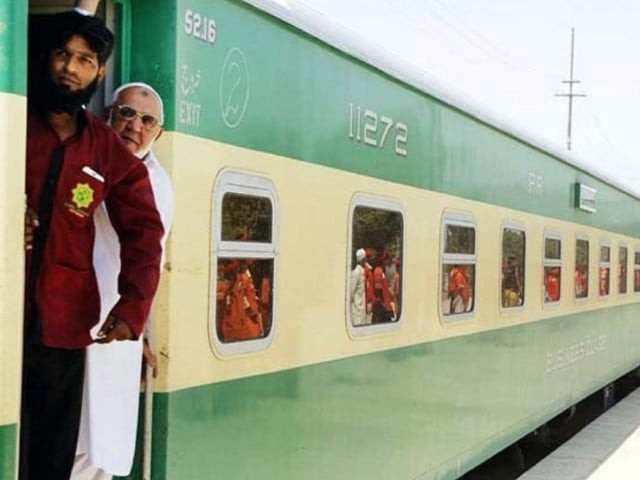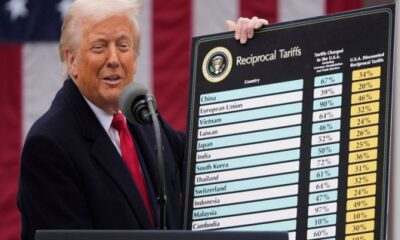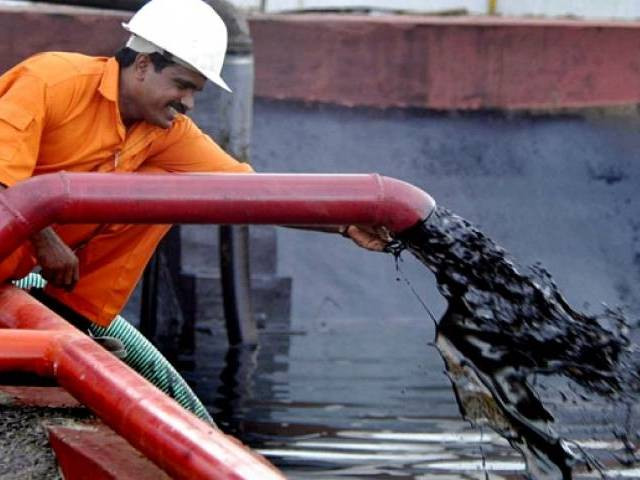Business
ADB investment puts Pakistan Railways back on track | The Express Tribune

KARACHI:
Pakistan’s railway sector, long described as the backbone of national connectivity, is again moving to the forefront of policy debates as the government turns to the Asian Development Bank (ADB) for support.
Years of underinvestment, safety lapses, and the stalling of promised Chinese funds have left Pakistan Railways in a precarious state, forcing policymakers to look elsewhere. Officials confirm that Islamabad is seeking a $2 billion package from the ADB to begin long-awaited modernisation works, most notably on the Karachi-to-Peshawar Main Line-1 (ML-1) route.
The development comes at a time when fiscal pressures, declining freight revenues, and growing competition from road transport have left the railways struggling to perform their role as a cost-effective logistics provider.
Once considered a symbol of national pride, Pakistan Railways now carries around 70 million passengers annually but operates on outdated tracks and antiquated signaling systems. The freight side of operations, which used to generate the bulk of revenue in the 1960s, has collapsed to less than a tenth of overall business, pushing industry and traders onto highways.
This shift has come at a steep cost: logistics expenses in Pakistan are estimated to be about 35% higher than the South Asian regional average, eroding export competitiveness and putting pressure on sectors such as textiles and agriculture. The decaying system has also reduced safety, with derailments and breakdowns becoming more common, further weakening public trust in rail travel.
The ML-1 project has been on the table for years under the China-Pakistan Economic Corridor (CPEC), initially tagged at $6.8 billion but now estimated to exceed $9 billion due to repeated delays and cost escalations. China had long been expected to bankroll the project as part of its Belt and Road Initiative, but its disbursements have slowed dramatically amid Pakistan’s worsening fiscal situation and Beijing’s own economic recalibrations.
The ADB’s decision to intervene, therefore, represents more than just a financial transaction. It reflects Islamabad’s growing reliance on multilateral lenders at a time when bilateral commitments have become uncertain. Analysts suggest the shift also diversifies Pakistan’s options and reduces overdependence on a single source of funding.
The proposed ADB package would target three areas: rehabilitation of ML-1 to allow faster and safer travel, development of a dedicated freight corridor to take pressure off highways, and the introduction of digital systems to monitor and secure railway operations. If executed properly, these changes could enable passenger trains to run at up to 160 kilometres per hour, cut travel time on key routes nearly by half, and encourage a revival of rail-based logistics.
Exporters, especially in the textile sector that accounts for nearly 60% of Pakistan’s exports, see in this a chance to reduce delays and cut costs associated with moving goods to Karachi Port. Improved connectivity between port cities and inland hubs such as Faisalabad and Multan could also enhance Pakistan’s role as a trade corridor linking South Asia with Central Asia.
Economists argue that the benefits go far beyond efficiency. Infrastructure investment of this scale has a multiplier effect, which generates tens of thousands of construction jobs and stimulates industries such as steel, cement, and services. A stronger railway backbone would also reduce the environmental toll of excessive trucking, lowering fuel consumption and emissions.
In a country where energy imports weigh heavily on the balance of payments, the savings could be significant. For passengers, meanwhile, modernised trains and safer systems would restore confidence in a service many have abandoned in favour of buses or private transport.
Pakistan’s external debt now exceeds $130 billion, much of it owed to multilateral lenders, and the repayment capacity remains a concern. While ADB loans are typically concessional, offering softer terms than commercial borrowing, they still require discipline in implementation.
Critics note that past railway projects have often been marred by inefficiency, corruption, and bureaucratic inertia. Without proper oversight and reform, there is a risk that even low-cost financing could add to the country’s debt burden without delivering transformative results. Transparency advocates are calling for the independent monitoring of funds to ensure they are not wasted.
China’s sidelined role also adds a geopolitical dimension. Over the past decade, Beijing has invested more than $25 billion in Pakistan, largely in energy and infrastructure, but its pace of financing has slowed markedly. Analysts attribute this partly to Pakistan’s fragile fiscal position, which increases repayment risks, and partly to China’s shifting global priorities as its own economy faces headwinds.
Some experts argue that China has not abandoned CPEC altogether but is recalibrating its involvement, focusing on selective projects while encouraging Pakistan to diversify its financing sources. In this context, the ADB’s re-emergence as a key financier could be seen less as a replacement and more as a complement to future Chinese investments.
There are lessons to draw. Bangladesh and India have both secured ADB support for rail and metro upgrades, with visible success in enhancing efficiency and safety. Pakistan has lagged behind, partly because of political instability and partly due to a centralised management structure that has resisted reform.
The ADB’s involvement might serve as leverage for Islamabad to introduce governance changes, open space for private sector participation, and embrace technology-driven solutions. Without such reforms, financial injections alone may not lead to the desired turnaround.
The writer is a member of PEC and holds a Master’s in Engineering
Business
Greggs to reveal trading amid pressure from cost of living and weight loss drugs

Greggs is to shed light on demand from customers as the high street bakery chain contends with the rise of weight loss treatments and cost of living pressures on shoppers.
The high street chain is also wrestling with other factors including increases to labour costs and tax changes.
As a result, on Tuesday March 3, Greggs is expected to reveal pre-tax profits of around £173 million for the year to December 27, representing a 9% drop.
In its previous update shortly after Christmas, Greggs pointed to a strong finish to 2025 as sales growth accelerated in the final quarter of the year.
Like-for-like sales growth rose from 1.5% in the third quarter to 2.9% in the final months of 2025.
Totals sales were up 7.4% in the final quarter amid a boost from the group’s continued store opening programme.
The company opened 121 stores last year.
However, analysts at Deutsche Bank said expectations “have already been set low” for 2026 and are “unlikely to change”.
In January, Greggs said it was “cautious but hopeful” about its outlook for 2026, highlighting “subdued” consumer confidence.
Roisin Currie, chief executive of Greggs, also warned alongside its previous update that there was “no doubt” appetite-suppressing medication is having an impact on the bakery chain’s business.
It may provide more detail on how this continues to change customer eating habits.
Meanwhile, the group also announced that inflation was likely to be shallower than last year.
The group increased the price on a number of products and deals last year, so shareholders will also be keen to see how these changes have continued to impact trading.
Aarin Chiekrie, equity analyst at Hargreaves Lansdown, said: “Investors are keen to hear how 2026 is shaping up in the early months.
“While the picture on the cost front is beginning to look more favourable, Greggs has plenty of other challenges still to wrestle with.
“Unhelpful changes to tax rules and minimum wages, slowing UK economic growth, and cost-conscious consumers are all weighing on the outlook.”
Business
Yorkshire Cat Rescue sees rise in abandoned cats as costs increase

Yorkshire Cat Rescue in Haworth says it paid £282,000 in vet bills in 2025 and rescued 925 animals.
Source link
Business
NSE IPO: Why It Won’t Debut On NSE, CEO Ashish Chauhan Breaks It Down

Last Updated:
Ashish Chauhan confirms National Stock Exchange will list its IPO on Bombay Stock Exchange, as Indian regulations bar self-listing.


The NSE operates the world’s busiest derivatives market by number of contracts traded.
The National Stock Exchange will look at other prominent exchanges like Bombay Stock Exchange (BSE) to list its upcoming IPO when it goes public. Managing Director and Chief Executive Officer Ashish Chauhan told ANI that Indian regulations prohibit the exchange from self-listing.
The NSE operates the world’s busiest derivatives market by number of contracts traded.
Regulatory Framework Bars Self-Listing
Chauhan said Indian regulations prohibit a stock exchange from regulating and listing itself, requiring it to seek admission on another recognised platform. “It’s a regulation of India, and we have to abide by that,” he told ANI.
The comments follow the Securities and Exchange Board of India’s (SEBI) no-objection certificate, which clears a key hurdle for the exchange’s long-pending initial public offering (IPO). Chauhan confirmed that the NSE would pursue listing on an alternative exchange such as the Bombay Stock Exchange (BSE).
Under India’s regulatory framework, exchanges cannot list on their own trading platforms due to conflict-of-interest concerns. Chauhan noted that while some global exchanges, such as Intercontinental Exchange (ICE), the parent of the New York Stock Exchange (NYSE), are listed on their own platforms, India’s rules do not permit such arrangements.
Offer For Sale Structure And Timeline
Chauhan said the IPO would be structured entirely as an Offer for Sale (OFS), with no fresh capital raised. “We are not going to raise money for ourselves,” he told ANI, adding that existing shareholders would be invited to indicate their interest in selling shares.
The exchange, which has nearly 195,000 shareholders collectively owning 100 percent of the company, will take a few months to prepare and file its Draft Red Herring Prospectus (DRHP). SEBI will then review the document before granting further clearance.
On valuation estimates of around USD 50 billion circulating in the market, Chauhan advised caution. Pricing, he said, would be determined closer to launch, based on financial performance, industry comparables, growth trends, and broader economic and geopolitical conditions. Merchant bankers appointed to the issue will advise the IPO committee on the offer price.
Transparency, Governance, And SME Inclusion
Chauhan described the IPO as procedural, aimed at providing liquidity to shareholders rather than funding expansion, noting that the exchange remains profitable.
He said public listing enhances transparency and governance through wider ownership and real-time disclosure requirements. Citing the example of Life Insurance Corporation (LIC), he said governance standards improved following its listing.
In the same interview, Chauhan said India has positioned itself as a cost-effective and inclusive capital market, particularly for small and medium enterprises (SMEs). He contrasted domestic listing costs with those in developed markets such as the United States, where expenses can range between USD 20 million and USD 30 million.
“In India, people are raising USD 1–2 million also. So how much they are spending is probably 5 to 10 per cent of that money to list,” he told ANI, adding that India’s ecosystem of merchant bankers, legal advisers and compliance professionals supports SME participation.
Follow News18 on Google. Join the fun, play games on News18. Stay updated with all the latest business news, including market trends, stock updates, tax, IPO, banking finance, real estate, savings and investments. To Get in-depth analysis, expert opinions, and real-time updates. Also Download the News18 App to stay updated.
March 01, 2026, 09:10 IST
Read More
-

 Business1 week ago
Business1 week agoUS Top Court Blocks Trump’s Tariff Orders: Does It Mean Zero Duties For Indian Goods?
-

 Fashion1 week ago
Fashion1 week agoICE cotton ticks higher on crude oil rally
-

 Entertainment1 week ago
Entertainment1 week agoThe White Lotus” creator Mike White reflects on his time on “Survivor
-

 Politics1 week ago
Politics1 week agoPakistan carries out precision strikes on seven militant hideouts in Afghanistan
-

 Business1 week ago
Business1 week agoEye-popping rise in one year: Betting on just gold and silver for long-term wealth creation? Think again! – The Times of India
-

 Sports1 week ago
Sports1 week agoBrett Favre blasts NFL for no longer appealing to ‘true’ fans: ‘There’s been a slight shift’
-

 Sports1 week ago
Sports1 week agoKansas’ Darryn Peterson misses most of 2nd half with cramping
-

 Politics1 week ago
Politics1 week agoUS Supreme Court strikes down Trump’s trade tariff measures














